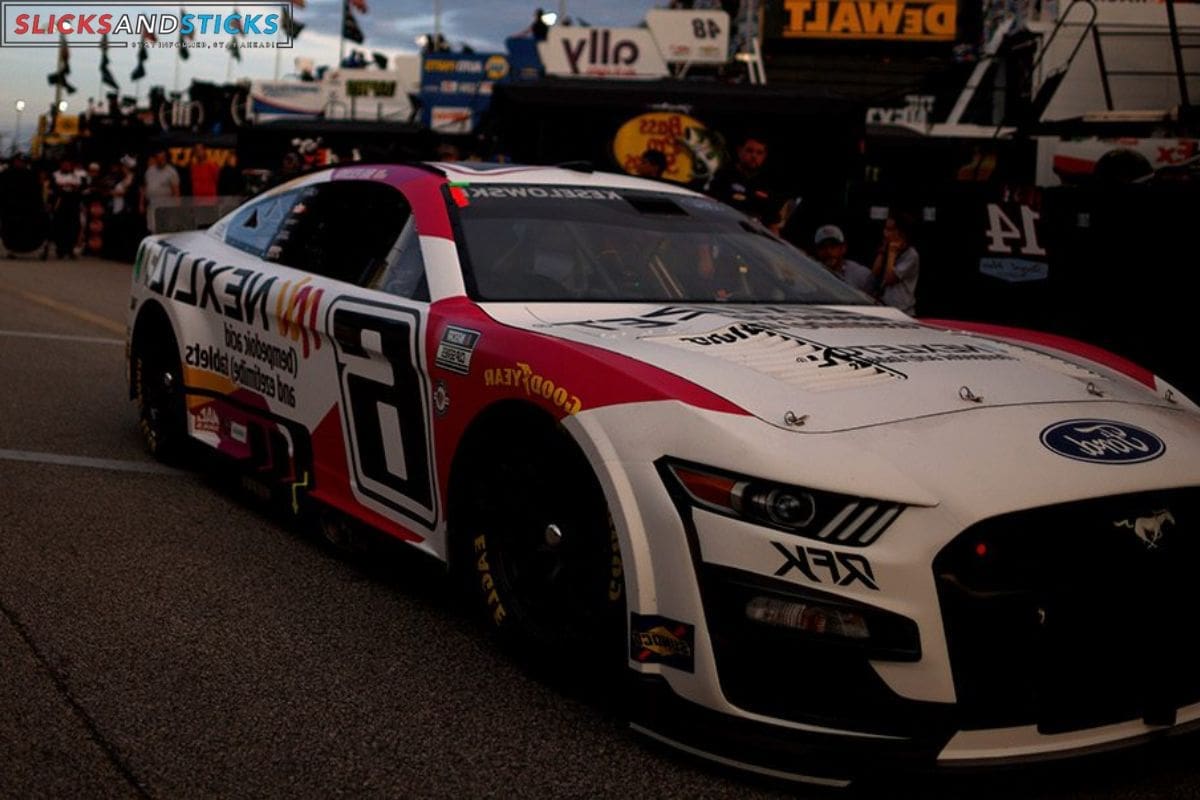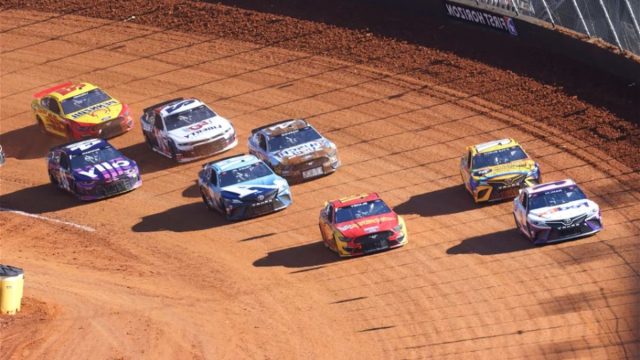Debating Practice Sessions: As the expiration of NASCAR’s current charter agreement with teams looms, negotiations have hit an impasse, sparking talks of a potential public team strike during pivotal races. The atmosphere appears tense, with fluctuating statements from NASCAR’s president, Steve Phelps, contributing to the unsettled mood. In any negotiation, finding common ground among all parties is pivotal for a smooth resolution.
Amidst teams’ primary request for permanent charters, an unlikely proposition for NASCAR, the demand for extended practice sessions, voiced notably by Brad Keselowski, might offer a potential compromise.
In a recent media address, Steve Phelps advocated “Cost Containment” as a strategy for teams to achieve profitability. NASCAR urges teams to mirror the organization’s efforts in enhancing revenue while seeking operational cost reductions. The approach towards practice sessions has evolved post-pandemic, transitioning from a hiatus to a scaled-down version in 2022 and 2023.
Brad Keselowski, co-owner of RFK Racing and driver of the #6 car, emphasized in a recent Nashville interview that the anticipated cost-saving results from shortened practice sessions haven’t materialized. Expressing the value of practice, he remarked, “I think there is a value to having some practice. I dont think that the cost savings are that significant.”
Keselowski’s call for longer practice sessions isn’t a new stance. Last year, he highlighted concerns about the expenses redirected into simulations and engineering, advocating for a thorough review of weekend schedules and practice formats.
Despite Keselowski’s rationale, some teams and drivers advocate for reduced on-track time. However, arguments in favor of extended sessions highlight an improved spectator experience, catering to fans who travel to witness their favorite drivers in action. Moreover, proponents emphasize safety, asserting that additional track time allows teams to identify issues and comprehend the car’s behavior better, especially with newer models like the Fords and Toyotas.

Contrarily, not all drivers support longer practice sessions. Tyler Reddick from 23XI Racing expressed a different view at NASCAR Champions Week in Nashville, suggesting that the allocated time for practice suffices for necessary adjustments.
The disparity in opinions among teams regarding practice and qualifying sessions might hinder their unified stance in charter negotiations with NASCAR.
While longer practice times offer various benefits, the potential trade-off between increased track time and the revenue provided by NASCAR may not align favorably. The outcomes regarding both charter agreements and the future of qualifying formats past 2024 remain uncertain, with these aspects unlikely to intersect.
ALSO READ: NASCAR Practice Sessions: The Unlikely Sentiments of Dale Jr. and Harvick
Our Reader’s Queries
How do you practice debating?
Assign a topic to each participant and allocate 4 minutes for them to silently jot down 2-3 arguments for both sides. Proceed to the next topic and reduce the preparation time to 3 minutes for outlining both sides. Continue with new topics and further reduce the preparation time for each round. This exercise will enhance critical thinking skills and encourage participants to think on their feet.
What is a fun way to teach debate?
Hat debates are a fun and challenging way to improve your impromptu speaking skills. The concept is simple: a topic is randomly chosen from a hat and two speakers, one for and one against, have to argue their position. With little to no time to prepare, participants must rely on their ability to think on their feet. This makes it an excellent exercise for anyone looking to improve their public speaking abilities. So, if you’re up for a challenge, give hat debates a try!
How do you train debating skills?
To improve your debating skills, it’s important to watch and analyze debates featuring experienced debaters or renowned public speakers. Pay attention to their speaking styles, argumentation techniques, and delivery. Take notes on their strengths and strategies, and learn from their successes. By observing and learning from the best, you can enhance your own debating skills and become a more effective communicator.
What are the 5 steps in a debate?
To effectively communicate your message, follow these five steps. Begin with an introduction that clearly expresses the importance of your message to both your audience and yourself. Next, break down the main thesis of your argument into smaller parts in a statement of fact. Provide confirmation or proof to support your argument, followed by a refutation of any opposing views. Finally, conclude your message with a strong summary of your main points. By following these steps, you can ensure that your message is clear, concise, and impactful.
